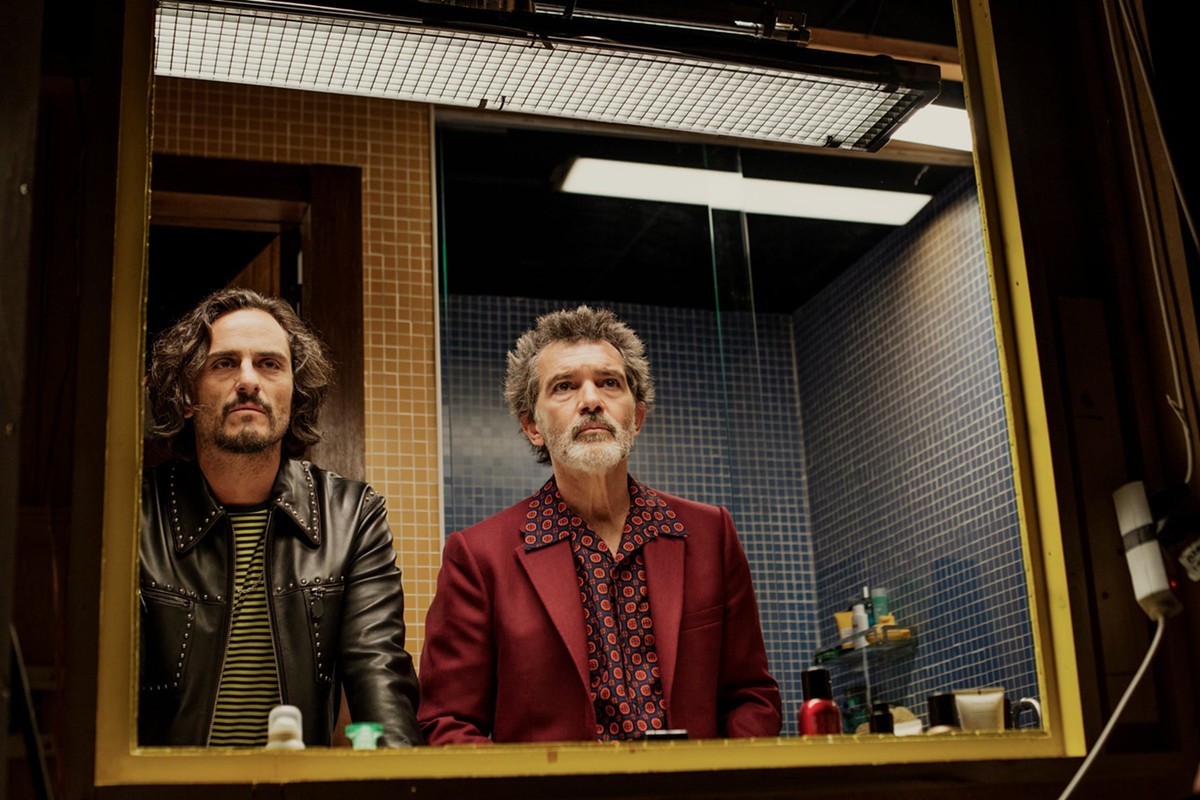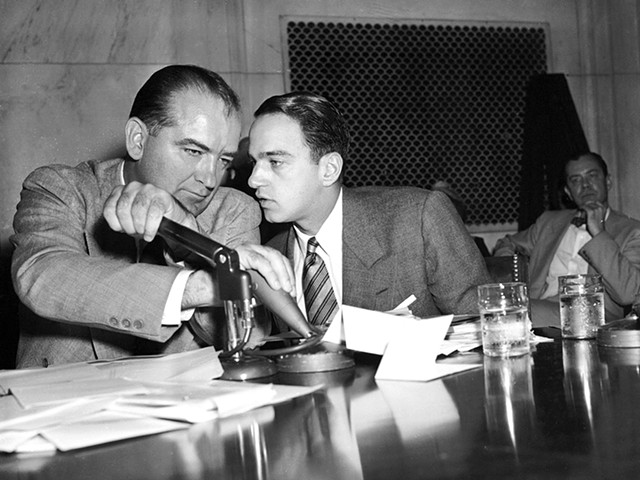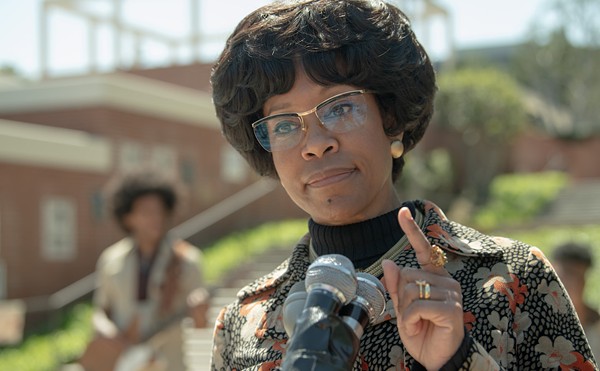Fellini's 8 1/2 wasn't the first film to offer an autobiographical perspective on the joy and agony of making movies, but it set the mold so firmly that almost every subsequent effort in cinematic self-exploration seems more like a parody of Fellini. You know the story: Frustrated egotistic artist stumbles through the events of his life while figures from his past and his creative work drop by, giving him a push as he unsteadily stands on a precipice between fantasy and reality. Pedro Almodóvar knows his way around gaudy distortions of reality and has never been afraid to present life through the curtain of dreams, so it comes as a surprise that his most personal film about life and creativity contains not even a nod toward the Fellini model. In Pain and Glory, the 70-year-old Almodóvar looks back on his past with calm consideration. This isn't autobiography as spectacle a la Fellini or Fosse but a thoughtful struggle along the path of memory.
Antonio Banderas plays Salvador Molla, an aging filmmaker whose taste in clothes and décor and his unruly shock of hair mark him as Almodóvar's surrogate. Feeling adrift in his Madrid apartment, Molla has lost interest in making films, sidetracked by a litany of health problems which Almodóvar piles onto him by way of a clever animated sequence. As the film begins, he's gradually beginning to regain interest in his work. He's been asked to introduce a screening of a restored film from 32 years earlier, one that he had considered a disappointment and that led to a falling out with the lead actor. Suddenly warming to the earlier work — he's told by a friend, "It's your eyes that have changed. The film is the same." — he decides to track down the lead actor Alberto Crespo (Asier Etxeandia) and put their feud behind him. Crespo, a heroin addict, is suspicious about Molla's sudden reentry into his life, but the director is persistent and soon begins, almost absentmindedly, to share drugs with the actor.
By settling his differences with Crespo, Molla is inadvertently forced to confront his past. The actor discovers an autobiographical text, the story of a romance from the past, on the director's computer and asks to turn it into an uncredited performance piece. In a daring move, Almodóvar turns over a fair portion of the film to a theatrical monologue, a move which allows the film to become autobiographical by projection, turning elements of Molla's life (and, one guesses, Almodóvar's) into a one-man show. It's a kind of artistic sleight of hand. The director's story becomes the actor's; the heroin addict goes on stage to relate the tale of someone else's addiction.
The theatrical centerpiece is key to Almodóvar's definition of his art. Words come before images, even though they may be of equal importance. Molla struggles over both, his anxiety neatly balanced a small event that takes place in two scenes, decades apart. As a child, Molla teaches an illiterate teenager working in his home to read; in a contemporary scene, he is rewarded for his efforts with a message discovered at an art gallery. As with Crespo's play, word and image come together in a single work of art.
Pain and Glory is bookended by segments showing Molla's relationship with his mother. In the early scenes, he's enchanted by his childhood home — a whitewashed cave in a small village — but his ambitious mother Jacinta (Penélope Cruz) finds it shameful. The later scenes of Molla caring for his mother (played as an older woman by Almodóvar regular Julieta Serrano) serve as an emotional anti-climax. The director comes to terms with his disappointments as well as hers. The death of a parent is often a potent reminder of one's own mortality, making this a fitting epilogue for a film about memory, aging, and coming to terms with one's past.
Though he's rarely off-screen, Banderas underplays his role, giving Molla a struggling, passive quality as if he's getting lost under the weight of his past. His brief spell as a Hollywood action hero once threatened to overshadow just how good an actor he is. Almodóvar brings out Banderas' thoughtful and vulnerable characteristics that most other directors have missed. I'm not familiar with Etxeandia's work, but he matches Banderas with a thoughtful, precise characterization, playing both romantic muse and Mephistopheles to the director.
When Almodóvar first appeared on the film scene in the 1980s, his films were often promoted for a kind of camp flamboyance, but those elements have proven to be less important over time. He still likes bold colors and meticulously planned décor, but those are just background elements. The heart of Pain and Glory, as with his best work, is in the ideas and emotions connecting Molla and the other characters. The director may enjoy a well-designed set, but it's not going to distract from the human drama within. Pain and Glory isn't Almodóvar's attempt at a flashy or histrionic confession/boast (it's not an Iberian All that Jazz). It's a personal and profound assessment of life from a filmmaker who's too honest to claim he has all the answers.






